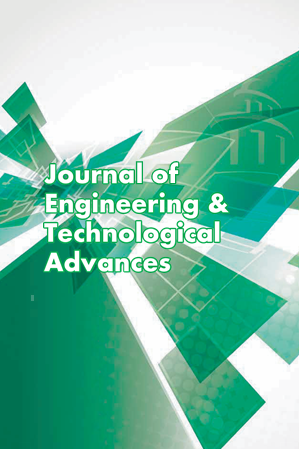Abstract
Photovoltaic (PV) systems are prone to partial shading effects, which cause multi-peak power points on the output curve, named local maximum power point (LMPP). The traditional perturbation and observation (P&O) algorithm will search into it when tracking maximum power. This paper proposes an improved variable step size (IVSS) perturbation tracking method to reduce the impact of perturbation step size choice on dynamic PV performance. MATLAB/Simulink software is used to develop and simulate the improved maximum power point tracking (MPPT) system. The IVSS tracking algorithm uses a program to achieve step perturbation. Finally, simulation results of the traditional P&O algorithm are compared with those achieved using the MPPT, verifying the superiority of proposed method in terms of tracking time, steady-state accuracy and maximum output power.
References
Ahmed, J., Salam, Z. (2015). An improved perturb and observe (P&O) maximum power point tracking (MPPT) algorithm for higher efficiency. Applied Energy, 150, pp. 97-108.
Bollipo, R. B., Mikkili, S., & Bonthagorla, P. K. (2020). Critical review on PV MPPT techniques: classical, intelligent and optimisation. IET Renewable Power Generation, 14(9), pp. 1433-1452.
Chaieb, H., Sakly, A. (2018). A novel MPPT method for photovoltaic application under partial shaded conditions. Solar Energy, 159(JAN.), pp. 291-299.
Chennoufi, K., Ferfra, M., & Mokhlis, M. (2021). An accurate modelling of Photovoltaic modules based on two-diode model. Renewable Energy, 167, pp. 294-305.
Dileep, G., Singh, S. N. (2017). An improved particle swarm optimization based maximum power point tracking algorithm for PV system operating under partial shading conditions. Solar Energy, 158, pp. 1006-1015.
Figueiredo, S., e Silva, R. N. A. L. (2021). Hybrid MPPT technique PSO-P&O applied to photovoltaic systems under uniform and partial shading conditions. IEEE Latin America Transactions, 19(10), pp.1610-1617.
Goud, S., Kalpana, R., Singh, B., Kumar, S. (2018). A global maximum power point tracking technique of partially shaded photovoltaic systems for constant voltage applications. IEEE Transactions on Sustainable Energy, pp. 1950-1959.
Hanzaei, S. H., Gorji, S. A., & Ektesabi, M. (2020). A scheme-based review of MPPT techniques with respect to input variables including solar irradiance and PV arrays' temperature. IEEE Access, 8, pp. 182229-182239.
Li, H., Yang, D., Su, W., Lü, J., Yu, X. (2018). An overall distribution particle swarm optimization MPPT algorithm for photovoltaic system under partial shading. IEEE Transactions on Industrial Electronics, 66(1), pp. 265-275.
Loukriz, A., Haddadi, M., Messalti, S. (2016). Simulation and experimental design of a new advanced variable step size Incremental Conductance MPPT algorithm for PV systems. ISA Transactions, 62, pp. 30-38.
Mao, M., Cui, L., Zhang, Q., Guo, K., Huang, H. (2020). Classification and summarization of solar photovoltaic MPPT techniques: a review based on traditional and intelligent control strategies. Energy Reports, 6, pp. 1312-1327.
Messalti, S., Harrag, A., Loukriz, A. (2017). A new variable step size neural networks MPPT controller: Review, simulation and hardware implementation. Renewable and Sustainable Energy Reviews, 68, pp. 221-233.
Sharma, R. S., Katti, P. K. (2017). Perturb & observation MPPT algorithm for solar photovoltaic system. International Conference on Circuit, Power and Computing Technologies (ICCPCT), pp. 1-6.
Tang Y., Gao S., Ma Z., Chen Q., Huang J., Dong Y. (2021). Photovoltaic MPPT tracking technology based on Fuzzy Control-disturbance Observation Method. Electrical Engineering Materials, 2021(2), pp. 43-46.
Tiwari, N., Tiwari, A. N. (2018). Design and control of buck converter using PID and Fuzzy Logic Controller. International Conference on Power Energy, Environment and Intelligent Control (PEEIC), pp. 557-564.
Wu, D., Sun, Y., Zheng, F. (2019). Research of a new photovoltaic module. International Journal of Energy Research, 43(13), pp. 7702-7709.
Zhang, W. (2019). Research on the Maximum Power Point Tracking Algorithm of Photovoltaic Power Generation System under Complex Illumination, Master’s thesis, Hebei University, China, 4(3), pp. 40-42.

This work is licensed under a Creative Commons Attribution-NonCommercial-NoDerivatives 4.0 International License.
Copyright (c) 2021 Array

